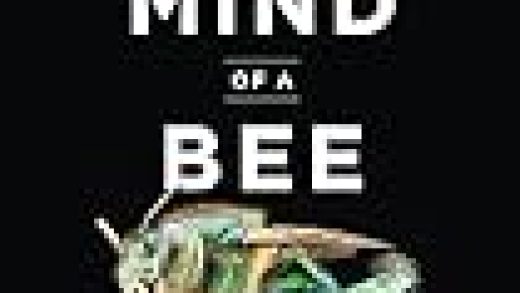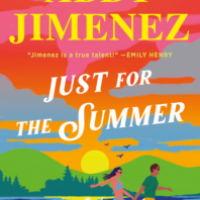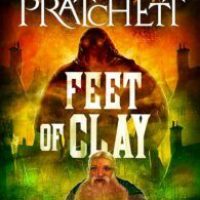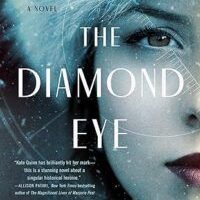Award-winning and acclaimed author Helen Oyeyemi has been dubbed a wunderkind, having published her first novel, The Icarus Girl, at 19. Several books later, she’s solidified herself as not only a picturesque storyteller but one who weaves the imagination in new ways, with no limitations on the scope of the story nor the paths of her characters.
In Oyeyemi’s new novel, Gingerbread (Riverhead), she brings readers into the life of Harriet Lee: a single mother to Perdita, doting daughter to Margot, an isolated figure in some respects but one who can make people’s emotions erupt in unexpected ways with her special gingerbread recipe. While the Lees live a relatively average life in England, the story of how Harriet and Margot got there includes some twists and turns, evolving into a multilayered story of friendships, family, money, and the risks of keeping secrets—all shot through with the currency of gingerbread, a family staple for Harriet and her mother.
Oyeyemi balances this captivating read with jocularity and an open-hearted fondness for her characters and the places they inhabit. The bonds of love, admiration, and even jealousy surface—all relatable emotions in any reality. Harriet’s story takes the reader from her childhood home in Druhástrana—a place many do not believe exists—to the capitalist clutches of a distant family member hoarding young girls to play parts in a kind of warped Disneyland, and from there to the home of the dysfunctional and wealthy Kercheval family, another branch on her family tree, who have an estate where rooms can actually be moved at will.
With the elements of the fantastic as well as nods to the Brothers Grimm Hansel and Gretel story, Gingerbread remains utterly unique, utterly spellbinding, utterly Oyeyemi. She and I sat down to talk about the distinctions of this novel as well as her methodology in her creation of a new story.
Jennifer Baker: When it comes to the reaction to Gingerbread and your previous work, where you’re melding in kind of surrealist elements, do you find people focus a lot on the fantastical?
Helen Oyeyemi: They do. I don’t really know what to say about it. For me it’s just a style or mode. It’s just a way of telling the story. So separating out the elements like “this is strange and this is normal” doesn’t make sense to me. It’s sort of like going through your soup saying “this is a pea and this is a carrot.” It’s all together. It’s all part of the same thing. So I don’t see a need to comment on it particularly.
JB: For me, this book, and I don’t like to project this on authors, it’s such a family story. I’m completely into generational stories. That’s pretty much my hook. And I really related to the overarching idea of protection. If I’m using these kinds of thematic identifiers with the 3 women: where Perdita is trying to find the truth, Harriet’s searching for a subsection of another truth. And even Margot’s knowledge of a kind of truth and family being a mysterious entity. It really seems like this amalgamation of people trying to protect the people they love and then ends up hurting people.
Separating out ‘this is strange and this is normal’ doesn’t make sense to me. It’s like going through your soup saying ‘this is a pea and this is a carrot.’
HO: I see the family story, but for me, honestly, it was about Harriet. It was kind of this story of what was happening to her; I just sort of made a pact that I was going to get her through to the end and that she was going to be okay. I didn’t know if she was gonna be able to find the sort of acceptance she was searching for with her gingerbread. But I wanted to not leave the story until she was in some way able to move on to new questions. It wasn’t about resolving all of her issues, but shifting her attention towards the future. Because she’s always in some kind of anticipation of some future.
I guess the turning point in the book for me is when someone asks her if she has a future and she has no idea. And she thinks maybe she doesn’t, but she says, “Of course I have a future.” But she spends most of the book looking into the past so deeply that she doesn’t notice her present. [Her childhood best friend Gretel’s] role is definitely a reminder to Harriet to try and keep going forward. And to kind of enlarge her presence. And it’s as if [Gretel] doesn’t appear because she knows that if she did Harriet would just be stuck.
JB: I was literally writing about this, about my family living in the past. And you know, part of that is the trauma of the past. I don’t meant to project trauma onto this story at all. But I wondered if Harriet and the past: Is it a way to kind of try to resolve mistakes made if you just keep thinking about in a way? Or is it just this methodical way to stay in stasis and feel safe?
HO: I don’t know that she associates the past as safety, but I think that she does associate it with certainty, which is in some context the same thing or very similar. It’s that she knew what was going on even though as she tells it it may feel like “What is going on?” But Harriet knows. Even if we as readers and listeners don’t really get that. Druhástrana was a very strange place, but it was a place that made sense to her. And then she’s in this new place with this daughter who does all these things that she completely can’t understand.
JB: And there’s the members of the PTA she can’t immediately win over—
HO: —And she’s like, “Why don’t you like my gingerbread?” It’s very confusing to her. It’s very very confusing to her in the present. The past is at least this place where she knew that Gretel loved her gingerbread. She knew this was the role her family played in society—-even though it was a terrible role. At least she knew what was going on.
JB: Plus there’s this readability that Harriet always seemed to have. She kind of prides herself on being able to read these moments and also read the Kercheval family. I can kind of see that safety in it and that knowledge-base going. So how do you start with a character like Harriet and then bookend her with Margot and Perdita as you’re writing?
HO: It’s as if they kind they came to me imaginatively to try and support her or protect her. It comes back to protection again. To try and protect her. Even though it causes so many problems and they bully her. She’s trying so hard to take care of them. It’s this kind of difficult sort of scrum that they’re in. I honestly don’t know how those three make sense, but somehow they do. Maybe that’s the story of my family. These people are connected. And it’s broadly at that.
JB: Do you feel like with your writing family dynamics become a necessary element in the storytelling?
HO: Family does appear. I feel like it appears in different guises. I don’t know, if you asked me off the top of my head I wouldn’t say it’s the primary thing that I’m interested in. With every book I really stuff a lot in there and it’s definitely one of the things that I stuff in there. I wouldn’t say that it would come out on top. If I was talking about what was topmost, I think the questions about value got sort of attentive especially when Harriet’s money turned out not to be real. What are things worth to people and why some things seem more valuable for being homemade or for being personalized and others don’t. You know, just sort of weighing up those kind of matters. That would be topmost, but then there is so much in there as well.
JB: It’s so interesting you say that because then my mind goes back to all these scenes: The value of Harriet keeping her baby. The value of the Lees extracting themselves from the Kerchevals. The value of Margot and Harriet having their own place in the U.K.
HO: Right, like trying to buy dignity: what it costs and whether you can actually afford it. These kind of things or transactions that you make without physical currency.
JB: It feels like Harriet kind of sees things in the world as transactional though.
HO: She does and it’s all about being tied into her past. I mean she’s kind of raised as a unit on this farm for value. And so yeah there was a lot of “What can I add?” “What is my role here?” “How can I be valuable?”
JB: And that hits home in the beginning, too, because it’s about the transaction of what you can get from gingerbread. What her mother got from gingerbread and also her great great-grandparents got from it.
HO: Yeah, it’s just always been used that way. It is kind of sad. I’m not feeding people out of sheer generosity but feeding people to be fed in some way yourself.
JB: Wow, I’m reading it a whole different way.
HO: Well I’m thinking about it in a different way.
JB: May I ask if the consistency of discussing your books for a period of time affect you on a creative level? Is it “Okay, Gingerbread is done. I’ve talked about Gingerbread for six months. Next!”
HO: I have a whole bunch of notes and I’m actually about to start writing the new one. I’m so excited. I’m so looking forward to it. I’m not affected by it. Looking at the reviews is interesting. I always hope to see some perspective on what I’ve done is interesting. But for the most part it’s not that helpful, it’s like “She did this and this and that and I liked it or I didn’t like it.” And it’s like “Oh well, but it’s done.” And with the next book it’s gonna a whole different thing again.
JB: Considering how many books you’ve written have you been able to compartmentalize that as you’ve gone on? Or have you been able to do that from the outside?
HO: This is my seventh [book]. Every time that I start it kind of feels like it’s going to be impossible to finish.
JB: And you do it.
HO: Somehow, right? And time goes weird. Because all I do is write the book. That means that I don’t really have a sense of days and months and weeks and things.
JB: I wonder if that’s somewhat gratifying?
HO: It kind of feels as if you’re about to go into a trance for an indefinite period of time. You just don’t know what’s going to happen or who you’re going to be afterwards. But I’m also looking forward to it. It’s like a disappearance, like a transformational one.
JB: So that’s why you’re effective. The rest of us are on Twitter and Helen’s writing books.
HO: I [use Tumblr] a lot. What I like about Tumblr a lot is it’s very very very focused. So if someone has an art Tumblr it’s just full of art. There’s nothing about their life. It’s just these things. And same with books.
JB: So how are you feeling in general about Gingerbread and going out in the world and talking about it? I personally hope people don’t focus on the racial aspects. Jordan Peele’s movie is coming out and everyone keeps asking him, “So is this about race?”
Helen: Oh really?
JB: Yeah, because it’s a Black family. And he says “It’s not Get Out.”
HO: Get Out was a unique story, and I love that when he goes into the chamber and finds all of her pictures. I was like oh! But it’s so much more than that and it’s so much bigger than that. So far nobody has, but it’s very early days. We’ll see. I obviously don’t think it should be a thing. Based on how I’ve written it, it’s just like here’s just some people doing what they do.
JB: It’s so refreshing to read this and enter the story. I do think it’s not just a difference in cultures, but also perspectives of you’re going into the story and people are brown and that’s just what it is.
There’s no kind of description of “brown skinned Harriet” or emphasis on her skin tone.
HO: But it’s also not my conception of character. I would just prefer to work from the inside out. The things that I’m interested in about people… the things I find most real about people [are] the things that they hate. It’s weird. I always have a moment with my friends where they said something that shows how bad-tempered they are. And then I feel like I actually know you. And I’m working from there.
I always have a moment with my friends where they said something that shows how bad-tempered they are. And then I feel like I actually know you.
JB: That tone makes sense because I think Harriet focuses on those pieces. And it doesn’t become, “Oh, you’re a terrible person.” It’s “Oh, you always seem to placate to certain people.”
HO: Yeah, it’s all kinds of patterns of behavior are the way to know what’s going on with people. It’s a way of reading people. I’m not saying it’s the way but at least it’s a way.
JB: Do you think that’s a writerly trait? Reading people?
HO: Some writers. My favorite kind. I’m thinking Barbara Comyns is one of my favorite’s ever and I think that’s kind of her way. But also it’s a kind of strange sympathy for, not bad behavior, I just think she casts this view on all of the slightly underhanded things people do and she kind of looks at what they were trying to do, which is ultimately actually not bad. They were just trying to survive. Or trying not to hurt another person. It doesn’t excuse or forgive the dodgy behavior, but it just kind of gives you a broader arc.
The post Helen Oyeyemi’s Dark, Delicious Fairy Tale appeared first on Electric Literature.















